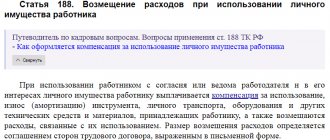Resolution of the Plenum of the Supreme Court of the Russian Federation “On the Judicial Sentence” (Extract)
The Plenum of the Supreme Court of the Russian Federation, guided by Article 126 of the Constitution of the Russian Federation, Articles 2 and 5 of the Federal Constitutional Law of February 5, 2014 No. 3-FKZ “On the Supreme Court of the Russian Federation,” decides to give the following clarifications:
5. If a victim, a witness who is a spouse or close relative of the defendant refuses to give testimony, as well as if the defendant himself refuses to give testimony, the court has the right to read out the testimony previously given by them, reproduce audio and (or) video recordings and filming materials attached to the interrogation protocol interrogation and refer in the verdict to these testimonies and materials only if, during the preliminary investigation, the relevant provisions of paragraph 3 of part 2 of Article 42, paragraph 2 of part 4 of Article 46, paragraph 3 of part 4 of Article 47, paragraph 1 of Article 47 were explained to these persons 4 of Article 56 of the Code of Criminal Procedure of the Russian Federation, according to which no one is obliged to testify against himself, his spouse and close relatives; in addition, they were warned that their testimony could be used as evidence in a criminal case, including in the event of their subsequent refusal of this testimony, and the testimony of the defendant - provided that it was given to them in the presence of a defense lawyer (clause 1 of part 2 of article 75 of the Code of Criminal Procedure of the Russian Federation).
11. The verdict reflects the defendant’s attitude to the charge brought against him and evaluates the arguments he brought in his defense.
If the defendant changes his testimony, the court is obliged to find out the reasons why he refused the testimony previously given during the preliminary investigation or trial, carefully check all the defendant’s testimony and evaluate its reliability, comparing it with other evidence examined in the trial.
Failure by the defendant to confirm the testimony given by him during pre-trial proceedings in a criminal case in the absence of a defense attorney, including cases of refusal of a defense attorney, by virtue of paragraph 1 of part 2 of Article 75 of the Code of Criminal Procedure of the Russian Federation entails recognition of them as inadmissible evidence, regardless of the reasons why the defendant did not confirm them.
12. If the defendant explains the change or refusal of the testimony obtained in the presence of a defense lawyer by the fact that it was given under duress in connection with the use of unauthorized methods of investigation against him, then the court must take sufficient and effective measures to verify such a statement of the defendant.
In this case, the court should keep in mind that, taking into account the provisions of Part 4 of Article 235 of the Code of Criminal Procedure of the Russian Federation, the burden of refuting the arguments of the defense that the defendant’s testimony was obtained in violation of the requirements of the law lies with the prosecutor (state prosecutor), at whose request the court may the necessary legal actions have been taken.
25. Taking into account the peculiarities of legal proceedings carried out in accordance with the norms of Chapter 40 of the Code of Criminal Procedure of the Russian Federation, in the descriptive and motivational part of the sentence passed in a special manner with the consent of the accused with the charge brought, it is necessary to reflect that the court was satisfied that the conditions established by law were observed.
In particular, it should be indicated that the accusation is justified, supported by the evidence collected in the case, and the defendant understands the essence of the accusation brought against him and agrees with it in full; he filed a request for a special procedure in a timely manner, voluntarily and in the presence of a defense lawyer, and is aware of the nature and consequences of his request; The public or private prosecutor and the victim have no objections to considering the case in a special manner.
26. The descriptive and motivational part of the guilty verdict against a defendant with whom a pre-trial cooperation agreement has been concluded must contain the court’s conclusions about the defendant’s compliance with the conditions and fulfillment of the obligations stipulated by the pre-trial cooperation agreement concluded with him.
This part of the sentence, in particular, states that the accusation is justified, supported by the evidence collected in the case, and the defendant understands the essence of the charge brought against him and agrees with it in full; the pre-trial cooperation agreement was concluded by him voluntarily and with the participation of a defense lawyer; what assistance they provided to the investigation and what exactly it was expressed in; the results of a study of the circumstances specified in part 4 of article 317.7 of the Code of Criminal Procedure of the Russian Federation conducted at the court hearing are presented.
Chairman of the Supreme Court
of the Russian Federation V.M. LEBEDEV
Concept and properties of a sentence
A court verdict is a decision on the innocence or guilt of the defendant and the imposition of punishment on him or on his release from punishment, made by the court of first instance or appeal (clause 28 of Article 5 of the Criminal Procedure Code). The verdict ends the work of the trial court. This is the only procedural document that is issued in the name of the Russian Federation.
The requirements of legality, validity and fairness are imposed on the verdict. In accordance with Art. 297 of the Criminal Procedure Code, a sentence is considered legal, reasonable and fair if it is pronounced in compliance with the procedure established by the Code of Criminal Procedure and is based on the correct application of the criminal law.
The validity of the verdict assumes that all the court's conclusions set out in it are based on evidence examined during the trial and correspond to the factual circumstances of the case.
A fair sentence should be considered one in which the question of the guilt or innocence of the defendant is correctly resolved and the punishment is determined taking into account the gravity of the crime and the personality of the defendant.
"Fool or criminal?" — networks about the verdict of a blogger who kicked an FSB car
Timur Kondratiev, December 9, 2021, 22:35 - REGNUM The decision of the Tverskoy Court of Moscow to impose two years and eight months in prison on TikTok blogger Konstantin Lakeev (Kievskyyy), who is accused of damaging a car with the service number AMR during an uncoordinated action on January 23, 2021, provoked a discussion in the online community. Citizens left their comments on December 9 on the VKontakte social network.
Court
Ivan Shilov © IA REGNUM
Law enforcement officers detain a protester at an illegal rally in Moscow on January 23
© IA REGNUM
“Oh, how fair! If he kicked a car, he was given almost three years in prison, and if he had stolen a billion, he would have received a suspended sentence or a home address for it! What a “good” system they have built in Russia!” - Elena B is indignant.
Some users concluded that kicking a car does not mean an attack on a law enforcement officer, so there was no need to sentence the young man to prison.
“Exactly! Damage is a maximum of 50 thousand rubles, and the punishment is three years of actual imprisonment. Oboronservis. Damage - billions. The punishment is a couple of months in prison. Our justice is at its best, of course,” writes Sergei B.
Justice
Alexander Gorbarukov © REGNUM news agency
Others are convinced that ignorance of the law does not exempt from responsibility. Since the guy damaged a company car, it means he should be punished accordingly for this.
“The point is not that he did not harm a specific person, he, in fact, attacked a car with law enforcement officers inside, while they were on duty. You cannot attack the police, FSB officers or anyone else. Youngsters just need to get it off their chest, and that’s it, they won’t have any problems. Just don’t kick other people’s cars,” points out Oleg E.
Some people believe that the young man simply did not think, he was overwhelmed by feelings, which led him to the idea of damaging the company car.
“This is hooliganism, nothing more. He didn’t think at that moment that his time would come. He kicked a car - he's a fool, but he's not a dangerous criminal! And they gave such a period of time in order to intimidate people in general!” — Eva M. shared her opinion.
A number of users indicate that the guy acted radically, and he directed his aggression precisely towards the security forces, which means that he can pose a danger to society and the law enforcement system of Russia.
“If he’s kicking a car with FSB men, then who knows, maybe tomorrow he’ll take a weapon and go shoot at law enforcement officials. He must be isolated from society. In prison, let him think about his behavior,” says Evil I.
Some commentators note that the blogger showed his aggression for a reason; he was expressing his own position. What kind of position is this? Why do young people express it, despite the likelihood of ending up in jail? These issues should be raised by the country's leadership in order to prevent the worsening of such trends in Russian society.
“And what is all this for? The young moron took his own life. Who pushed him to commit such illegal actions? Where does such aggression come from in a guy who has just begun to experience life? Why doesn’t he recognize this system, why does he want to show his aggression? Nobody, of course, will think about this. Deputies are inviolable, law enforcement officers are protected by law, people sit at home and don’t make noise. How long will this precarious calm last if they have already started shooting at schools?” — asks Nikolai P.
Against all
Afanasy.biz
Let us remind you that on December 8, the Tverskoy Court of Moscow sentenced two years and eight months in prison to TikTok blogger Konstantin Lakeev (Kievskyyy), who is accused of damaging a car with an AMR service number during an uncoordinated action on January 23, 2021.
Proclamation of the verdict
After signing the verdict, the court returns to the courtroom and the presiding judge announces the verdict. Everyone present in the courtroom, including the court panel, listens to the verdict while standing.
If the sentence is stated in a language that the defendant does not speak, then after the announcement of the sentence or simultaneously it is translated aloud by an interpreter into a language that the defendant speaks.
If the defendant is sentenced to an exceptional punishment - the death penalty, the presiding judge explains to him the right to apply for pardon.
If only the operative part of the verdict is announced, the court explains to the participants in the trial the procedure for familiarizing themselves with its full text.
No later than five days after the pronouncement of the verdict, a copy of it is handed over to the convicted or acquitted person, his defense attorney and the prosecutor. Within the same period, a copy of the verdict may be served on the victim, civil plaintiff, civil defendant and their representatives upon the request of these persons.
The sentence against Father Sergius could become a lever for those who are undesirable
Father Sergius’ lawyer said that he reacted stoically to the verdict Photo: Vladimir Andreev © URA.RU
article from the story
The case of Father Sergius
The trial of ex-schema-abbot Sergius (Nikolai Romanov), who was sentenced to 3 years and 6 months in prison on November 30, is indicative. The court's decision may become a sign for those priests who will conduct similar sermons. The lawyer of the ex-schema-abbot, Pavel Babikov, spoke about this in an interview with URA.RU. He also drew attention to the role of Sergius’ supporter Vsevolod Moguchev and the possibility of mass protests by the elder’s adherents after the verdict.
— Why was Father Sergius sentenced to three and a half years in prison, and not four, as the prosecutor’s office demanded?
The punishment for Father Sergius was unjustifiably harsh, says Pavel Babikov
Photo: Vladimir Andreev © URA.RU
“The court took into account mitigating circumstances, so the sentence turned out to be different, but I still think that it is overly harsh. It is strange why the court chose such a long term, since Sergius did not cause any harm. No one committed suicide and no damage was caused to diocese property.
— How did Father Sergius react to the verdict of the Izmailovo court?
“He accepted the verdict stoically, as he did throughout the entire trial. He understood that the sentence would be harsh, so at the meeting he just stood and prayed. The handcuffs were not removed from him; he had to pray right in them.
— Can Sergius’s time in the pre-trial detention center, where he spent about a year, be counted toward the time he served his sentence in a colony?
- Definitely. The court must make such a decision, but this will be after the appeal that we file. We will demand that each day of detention be counted as one and a half days in the colony.
The lawyer is confident that Romanov will have his time in prison reduced due to the days spent in the pre-trial detention center
Photo: Vladimir Andreev © URA.RU
— Can Sergius’ supporters organize mass rallies of support?
- This is impossible, Sergius did not give his blessing for this. On the contrary, he said that he forgives everyone and does not hold a grudge against anyone. If there are any public actions of support, they will not be associated with Sergius.
— How is the trial progressing in the case of extremism brought against Father Sergius?
— So far, Sergius has only been charged. Information about this case will appear later, no meetings have been scheduled yet, but we assume that a preventive measure will be appointed in the near future.
— Could the investigation have used the press secretary of the ex-schema-hegumen Vsevolod Moguchev to testify against Sergius in the case of extremism?
Supporters of Father Sergius will not organize mass protests
Photo: Vladimir Andreev © URA.RU
— Perhaps Moguchev was detained so that he could testify against Sergius. I believe that this was one of the goals of the investigation, but I don’t think that Moguchev will actually testify.
— Could Sergius’s case become a lever of pressure on priests undesirable for the diocese?
The trial of Sergius is a show trial. He was significantly given a harsh sentence, which was not commensurate with Sergius’s offense. It is possible that in this way the diocese wanted to warn other priests who would conduct similar sermons: “if you speak, you will receive.”
Pavel Babikov believes that the precedent with the case of Father Sergius can be used against other priests
Photo: Vladimir Andreev © URA.RU
URA.RU sent a request to the press service of the Ekaterinburg diocese. There was no response at the time of publication.
Father Sergius was sentenced to three and a half years in a general regime colony, although the prosecutor's office requested four years in prison. The Izmailovo Court in Moscow found him guilty on three counts: arbitrariness, incitement to suicide and violation of the rights of believers. He was later charged with inciting hatred among religious groups. Security forces also detained his press secretary Vsevolod Moguchev on September 1. His apartment was searched. The equipment with which, according to investigators, was used to record videos of sermons that appeared on YouTube was seized.
Subscribe to URA.RU in Google News, Yandex.News and our channel in Yandex.Zen. Current news from your region - in the telegram channel "Ekaterinburg" and in the viber channel "Ekaterinburg", a selection of the main news of the day - in our newsletter with delivery to your inbox.
Supreme Court
The Supreme Court of Russia has strengthened the role of precedents: its positions on fundamental issues expressed in specific cases. Lower courts can no longer ignore the official opinion of a higher authority.
Today Rossiyskaya Gazeta publishes two decisions of the plenum of the Supreme Court, which lawyers have already called breakthroughs. In essence, we are establishing elements of case law.
The documents explain the intricacies of consideration of cases in the appellate and cassation instances. The resolution concerning the cassation courts gives a clear instruction: to check the conclusions of the first and appellate instances for compliance with the legal positions of the Supreme Court of Russia. If the lower authorities decided somehow in their own way, the decisions made should be canceled.
Judicial practice should be uniform throughout the country. There cannot be any special - Ryazan or Ural - interpretations of the law. We must understand that in a typical case there will be no surprises; the judges will decide as they should, and not as they please.
Sometimes in practice, indeed, controversial issues arise and at first there is no single approach. For example, in one of the regions, the tax inspectorate began to demand so-called purchase taxes from citizens. Let's say a farmer bought an expensive car. And the tax office issued an invoice: they say, we didn’t see how you earned this money, but since you got it from somewhere, you must pay tax on it. Did the car cost a million? Great, the tax office said, you must pay 130 thousand rubles to the treasury. Everything is fair.
Some courts agreed with this logic, some did not. Everyone was waiting for the first such case to reach the Supreme Court of Russia.
The high authority clearly said: no, such a tax is illegal. The rights of citizens were protected from now on. Once the Supreme Court made its decision on a specific case, all other similar cases decided on their own. Where the tax service itself withdrew its claims, where the courts rejected its claims. The precedent decision itself was included in the review of judicial practice of the Supreme Court of Russia. If anyone has any problems, they can refer to this document. But problems will not arise, the tax inspectorate acts law-abidingly: if it is impossible, it is not done. That's exactly how it works. However, as lawyer Vyacheslav Golenev says, in practice, sometimes courts pretend not to notice the legal positions of a higher authority.
Therefore, he called the adopted resolutions a significant step forward. The resolutions of the plenum, published in today's issue of RG, provide explanations to arbitration courts. However, according to experts, similar approaches can and should be established in relation to cassation courts of general jurisdiction - both in cases considered under the Civil Procedure Code and considered under the Code of Administrative Procedure.
“The cassation practice of arbitration cassation courts has been developed for almost 30 years,” says Vyacheslav Golenev. “The norms of the Code of Civil Procedure and the Code of Administrative Proceedings for the “new cassation” are largely borrowed from the provisions of the Arbitration Procedure Code of the Russian Federation on arbitration cassation proceedings.”
So courts of general jurisdiction also do not have the right to ignore the legal positions of the Supreme Court of the country.
“Therefore, it is justified to disseminate the positive experience of arbitration cassation courts in cassation courts of general jurisdiction,” says lawyer Vyacheslav Golenev. “But it is extremely important that the adopted decisions will now allow us to improve practice in arbitration courts.”
He gave an example from his practice. It happens that a large company is artificially split into several small organizations so that each of them pays tax according to a simplified system. In principle, this is a violation, as it is a typical tax evasion scheme. When the tax inspectorate catches entrepreneurs doing this, they make justified claims. But the question arises, by what formula to calculate VAT in this case. There are two options, in one case it comes out more, in the other - less.
According to the lawyer, the Supreme Court of Russia has repeatedly expressed the position that a humane formula should be applied in such cases. But some arbitration courts continue to make decisions that contradict the legal approaches of the higher authorities. Now they will be required to take into account a review of the judicial practice of the Supreme Court of Russia and rulings in specific cases. And explain why they are not suitable in this case, if, in the opinion of the court, the case is completely different.
In turn, lawyer Alexey Sikaylo noted that both decisions are interesting primarily in terms of clarifying such a category of complainants as “other persons on whose rights and obligations the contested judicial act was adopted.” Simply put, those who did not participate in the proceedings of the case in the first instance were not a party to the process, but still cannot remain on the sidelines. “It is proposed to interpret this category of persons quite broadly,” the lawyer emphasizes.
How are they
Case law has its origins in Britain and underpins the judicial systems of many former colonies of the British Empire. In the United States, during trials, real battles unfold between defense attorneys and prosecutors; each side gives its own examples of how they acted during the consideration of similar cases. The fact is that even in the colonial period, judges used English collections of court reports to reach a verdict on a particular dispute, taking into account local customs. It is noteworthy that lower courts must follow the decisions of higher ones (up to the Supreme Court), but may not be guided by the previously rendered verdict, creating a new precedent. The complexity of the system also lies in the fact that each American state has its own legal system with its own precedents.
In France, in practice, precedents play an increasingly important role, and there is a completely logical explanation for this. The fact is that when interpreting laws, gaps arise every now and then, and the obligation to fill them on the basis of existing precedents is assigned to the Court of Cassation, which is outlined in Article 4 of the French Civil Code. Moreover, decisions on these issues are published in special collections, which allows judges to get acquainted with new precedents and apply them in similar cases. Moreover, judicial precedents are widely used in administrative justice, where the highest court is the State Council. It is based on precedents that he makes many of his verdicts. Nevertheless, there is no strict obligation for lower courts to follow precedent decisions of higher ones in France.
Judicial decisions of the Italian Supreme Court of Cassation are binding only for each individual case presented, but do not always set a precedent for other future cases. Nevertheless, a court decision, having gone through the cassation phase, may be perceived by other courts as a precedent. “When preparing for any trial, we necessarily study precedent verdicts issued by the cassation court. Nevertheless, the decision remains with the specific court of first instance or the court of appeal, which may take note of the verdict of the Court of Cassation,” Natalia Grasso, Master of International and European Law, international lawyer at the Grasso Law Office, told RG.
Prepared by Niva Mirakyan (Rome), Vyacheslav Prokofiev (Paris), Yuri Kogalov
Vladislav Kulikov , Rossiyskaya Gazeta






